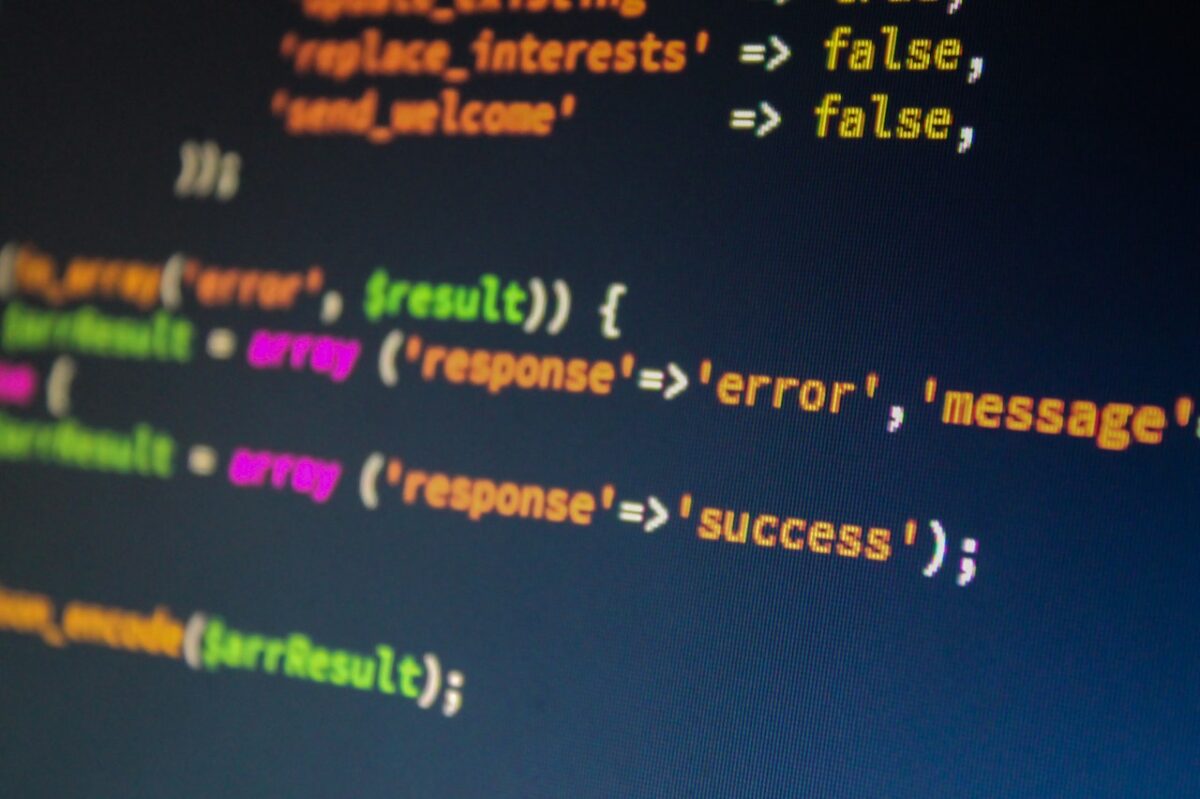PHP is a popular and widely used programming language that is primarily designed for web development. It stands for “PHP: Hypertext Preprocessor” and was created by Rasmus Lerdorf in 1994. PHP is an open-source language, which means it is freely available and can be used by anyone for both personal and commercial purposes. It has gained immense popularity over the years due to its simplicity, flexibility, and powerful features.
PHP is a server-side scripting language that is used to create dynamic web pages and web applications. It is embedded within HTML code and can be easily integrated with databases to create dynamic content. PHP code is executed on the server, and the resulting HTML is sent to the client’s web browser for display. Magento is an open-source e-commerce platform written in PHP. Many businesses choose this platform when they start an online store. Magento and Shopify are most popular platforms when it comes to the Ecommerce industry. If you need any help with Magento and Shopify migration services, you should hire https://mtnhaus.co/magento-to-shopify-migration/ to get the migration done right.
History of PHP
PHP was initially created by Rasmus Lerdorf as a set of tools for tracking visitors to his online resume. Over time, it evolved into a full-fledged scripting language and gained widespread adoption within the web development community. The official release of PHP version 1.0 was in 1995, and since then, it has gone through several major updates and improvements.
Key Features of PHP
PHP offers a wide range of features that make it a preferred choice for web developers:
- Easy to Learn: PHP has a simple and intuitive syntax that is easy to grasp, especially for those with prior knowledge of programming concepts.
- Cross-Platform Compatibility: PHP is compatible with various operating systems like Windows, Linux, macOS, and can be used with different web servers such as Apache, Nginx, and Microsoft IIS.
- Extensive Database Support: PHP provides built-in support for popular databases like MySQL, PostgreSQL, Oracle, and SQLite, allowing seamless integration with database systems.
- Rapid Development: With its extensive set of predefined functions and libraries, PHP enables developers to build web applications quickly and efficiently.
- Scalability: PHP allows developers to handle high traffic websites and applications by distributing the workload across multiple servers using load balancing techniques.
- Open-Source Community: PHP has a vast and active community of developers who contribute to its growth by developing frameworks, plugins, and providing support through forums and online resources.
Variables are used to store data in PHP. They are declared using the $ symbol followed by the variable name. PHP supports various data types, including strings, integers, floats, booleans, arrays, and objects. Variables in PHP are dynamically typed, meaning their data type can change during runtime.
Operators in PHP
PHP provides various operators to perform arithmetic, assignment, comparison, logical, and other operations. Some commonly used operators in PHP include:
- Arithmetic Operators: +, -, *, /, %
- Assignment Operators: =, +=, -=, *=, /=
- Comparison Operators: ==, !=, <, >, <=, >=
- Logical Operators: &&, ||, !
Control Structures
Control structures in PHP are used to control the flow of execution based on certain conditions. PHP supports conditional statements like if-else and switch, as well as looping statements like for, while, and foreach. These control structures allow developers to make decisions and repeat code blocks based on specific conditions.
Functions in PHP
Functions are reusable code blocks in PHP that perform specific tasks. They help in organizing code and improving code reusability. PHP provides built-in functions as well as the ability to create custom functions. Here’s an example of a custom function that calculates the square of a number:
Object-Oriented Programming (OOP)
PHP supports object-oriented programming(OOP) concepts like classes, objects, inheritance, and polymorphism. It allows developers to create reusable code modules and organize code in a more structured manner. OOP in PHP helps in achieving better code maintainability and scalability.
File Handling in PHP
PHP provides various functions for handling files and directories. It allows developers to read from and write to files, create directories, delete files, and perform other file-related operations. File handling in PHP is essential for tasks like file uploads, data processing, and file manipulation.
Database Connectivity with PHP
PHP offers seamless connectivity with databases, allowing developers to interact with databases like MySQL, PostgreSQL, Oracle, and more. PHP provides database extensions and functions to perform common database operations such as querying data, inserting records, updating data, and deleting records.
PHP Frameworks
PHP frameworks are pre-built libraries that provide a foundation for web application development. They simplify the development process by offering ready-to-use components, code templates, and architectural patterns. Some popular PHP frameworks include Laravel, Symfony, CodeIgniter, and Yii.
PHP Security
When developing web applications with PHP, it is crucial to consider security measures to protect against common vulnerabilities like SQL injection, cross-site scripting (XSS), and cross-site request forgery (CSRF). Proper input validation, output sanitization, and secure coding practices should be followed to ensure the security of PHP applications.
PHP Performance
PHP performance can be optimized by following best practices such as using caching techniques, optimizing database queries, minimizing file operations, and using efficient coding patterns. Additionally, leveraging PHP accelerators like Zend OPcache can significantly improve the execution speed of PHP code.
Conclusion
In conclusion, PHP is a versatile programming language widely used for web development. Its simplicity, extensive community support, and robust features make it an excellent choice for creating dynamic web pages and web applications. PHP’s continuous development and vast ecosystem of libraries and frameworks ensure its relevance and longevity in the field of web development.

